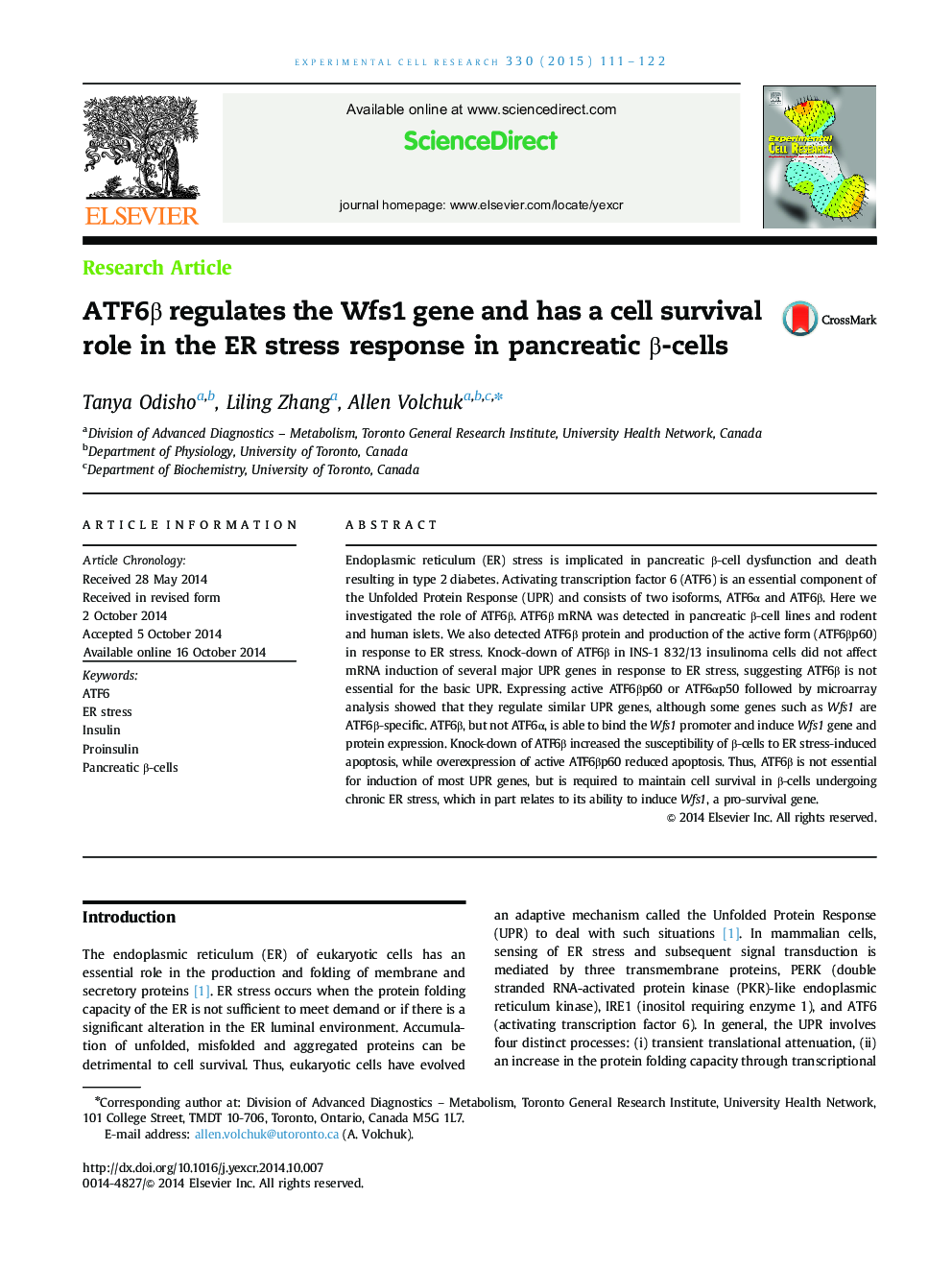| Article ID | Journal | Published Year | Pages | File Type |
|---|---|---|---|---|
| 10903971 | Experimental Cell Research | 2015 | 12 Pages |
Abstract
Endoplasmic reticulum (ER) stress is implicated in pancreatic β-cell dysfunction and death resulting in type 2 diabetes. Activating transcription factor 6 (ATF6) is an essential component of the Unfolded Protein Response (UPR) and consists of two isoforms, ATF6α and ATF6β. Here we investigated the role of ATF6β. ATF6β mRNA was detected in pancreatic β-cell lines and rodent and human islets. We also detected ATF6β protein and production of the active form (ATF6βp60) in response to ER stress. Knock-down of ATF6β in INS-1 832/13 insulinoma cells did not affect mRNA induction of several major UPR genes in response to ER stress, suggesting ATF6β is not essential for the basic UPR. Expressing active ATF6βp60 or ATF6αp50 followed by microarray analysis showed that they regulate similar UPR genes, although some genes such as Wfs1 are ATF6β-specific. ATF6β, but not ATF6α, is able to bind the Wfs1 promoter and induce Wfs1 gene and protein expression. Knock-down of ATF6β increased the susceptibility of β-cells to ER stress-induced apoptosis, while overexpression of active ATF6βp60 reduced apoptosis. Thus, ATF6β is not essential for induction of most UPR genes, but is required to maintain cell survival in β-cells undergoing chronic ER stress, which in part relates to its ability to induce Wfs1, a pro-survival gene.
Related Topics
Life Sciences
Biochemistry, Genetics and Molecular Biology
Cancer Research
Authors
Tanya Odisho, Liling Zhang, Allen Volchuk,
